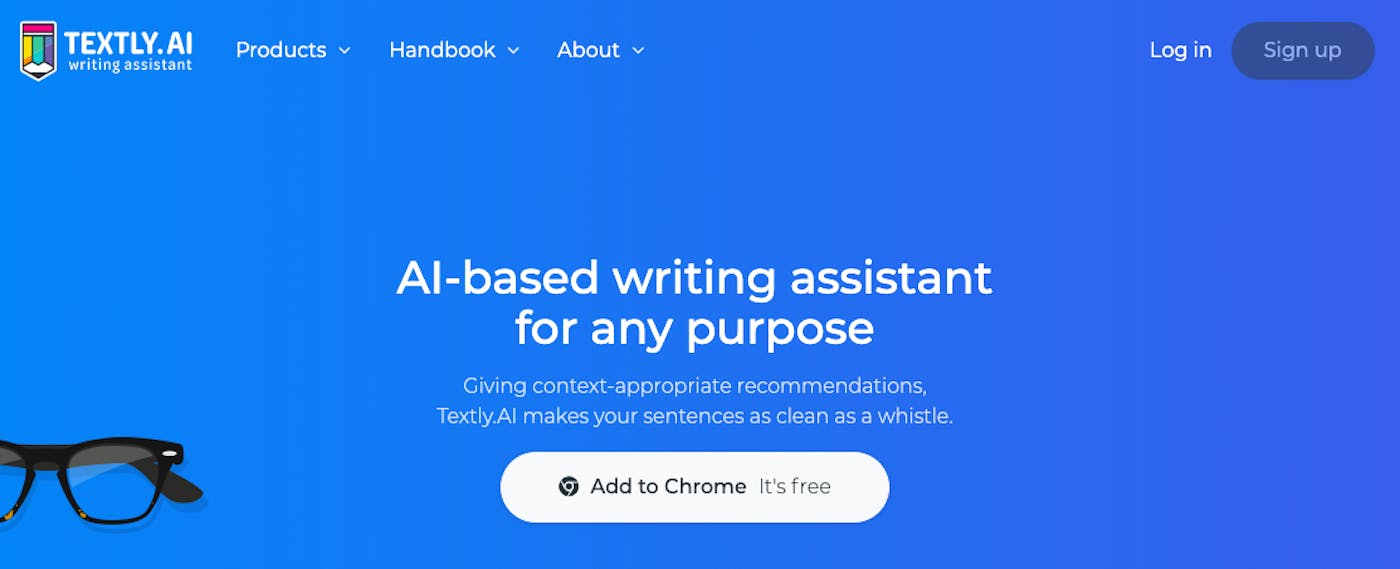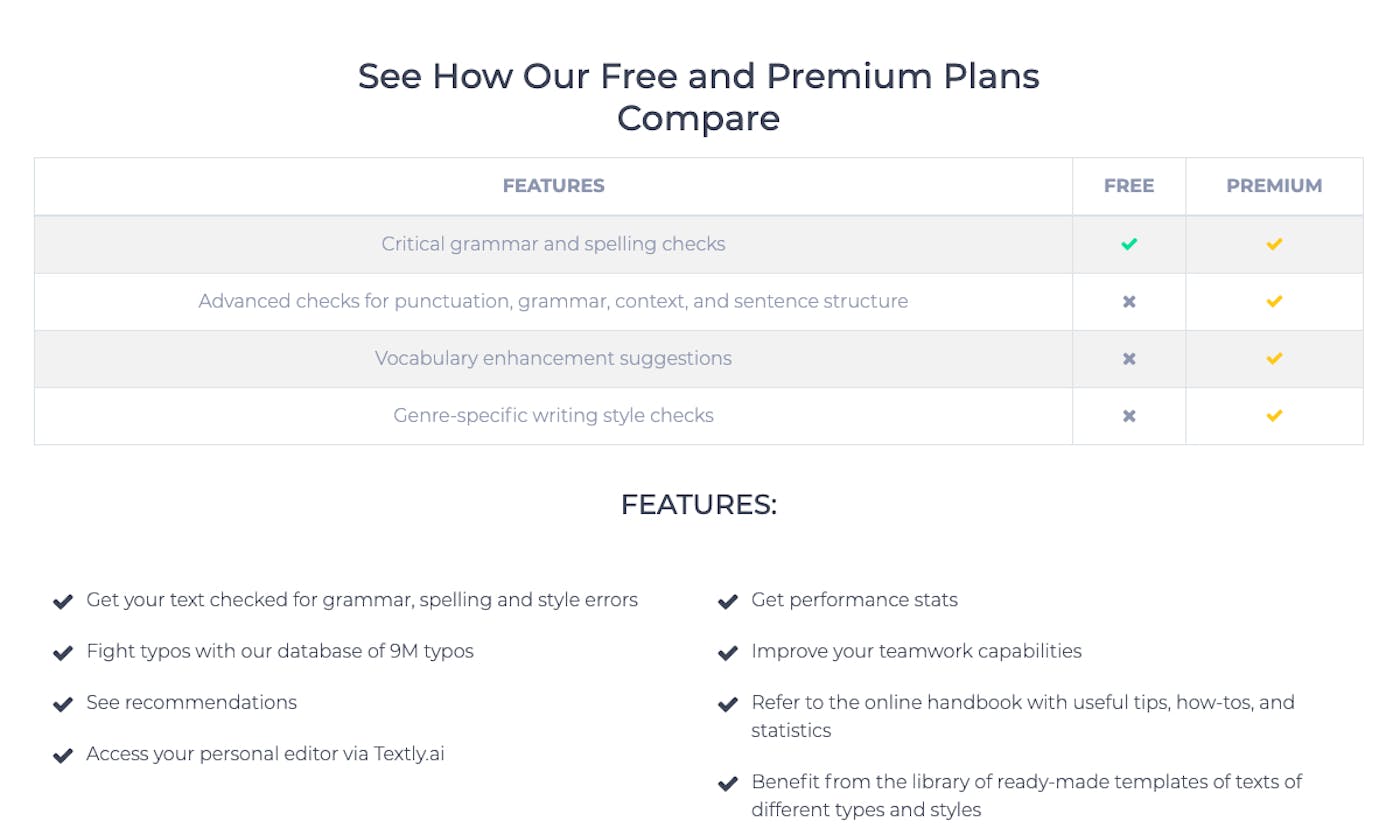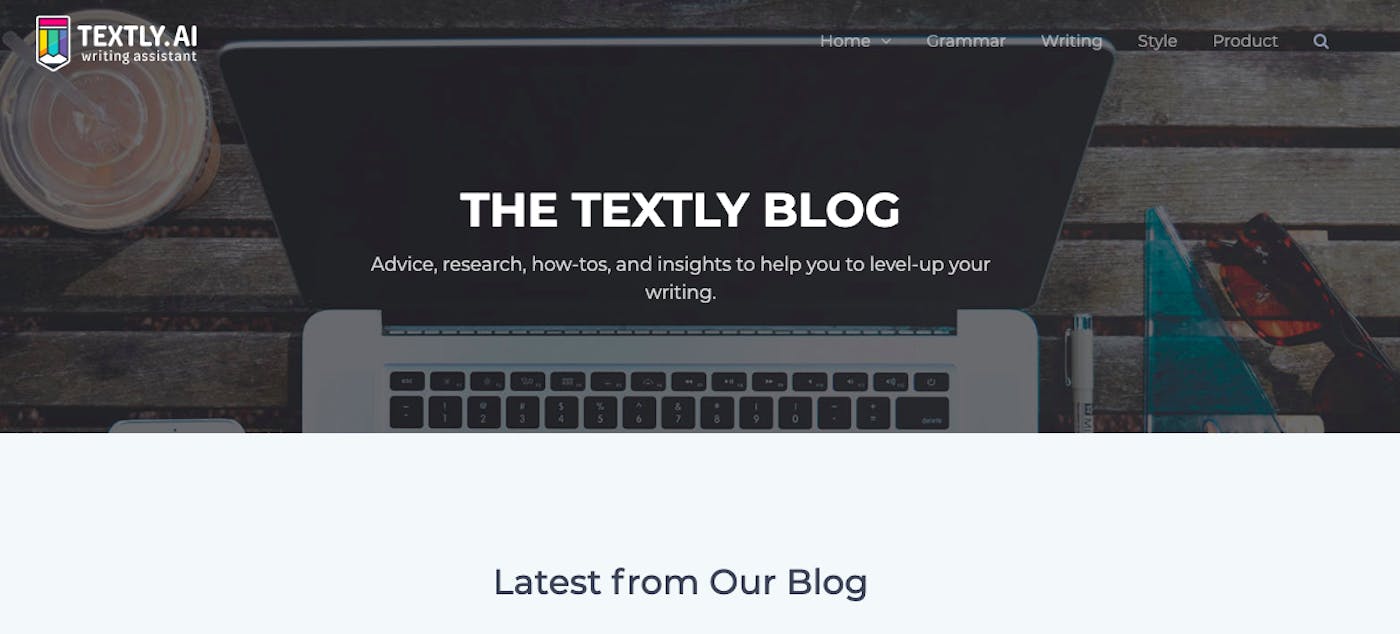How I Scratched My Own Itch and Discovered an Untapped Market
Hello! What's your background, and what are you working on?
My name is Alexander Lashkov, I am a professional content marketer and journalist with about nine years of experience. I run my own agency called Smile Bright Media in Miami, Florida, and I've now co-founded Linguix. It's a grammar checking software that is useful for anyone who writes something in English online for work, fun, or education.
To date, we have around 4,700 users and have sold first subscriptions for about $1,000-$1,200 total revenue per month.

What motivated you to get started with Linguix?
I am not a native English speaker, but my main job is writing — as a content marketer I write a lot of content, and English is one of the most popular languages for the customers of my agency. Also, I had to supervise a team of native and non-native content creators, so I needed a tool that would spot and fix errors and typos, and also give advice on style enhancement.
And I found such a product: Grammarly. However, as time went on I realized that it wasn’t the ideal tool for content creation and revision. So I decided to create a new tool that would have only necessary features, be lightweight and fast, and offer more control over the user's privacy, as well as help in content creation and language learning. Once I made up my mind, I visited my hometown to meet with my co-founder Vitaly, who is now our CTO and oversees the development process.
What went into building the initial product?
It took me a lot of time to make my way to Linguix. I already had my previous business — a web content marketing agency — but always wanted to dive into tech and work on a product rather than a service. But I knew that my technical skills were not good enough to build even a very basic MVP and, perhaps more importantly, I had no idea what I would make.
While building my agency, I've used lots of different software tools, and one of the most useful was Grammarly. I was a paid user for almost a year. However, the tool lacked some features I needed and instead had a lot of dead weight that wasn't useful for me. For example, you could order a human proofreading service (I've already paid for a grammar check!) or run your text for plagiarism (not that important if you're crafting your own email). I neither needed nor wanted these features. What I did want was more control over privacy and some content creation help, like content templates to help kickstart the writing process (sometimes it's hard to beat a writer's block). Finally, it was too expensive. So I thought that it would be cool to have a lightweight, privacy-oriented, cheaper tool.
That was the main idea, but I needed someone who could code it. Fortunately, I’d just happened to connect with Vitaly, our current CTO, and our run-of-the-mill "how are you" conversation on Telegram turned into an offline meeting where we discussed the idea and decided to build it. From there, we spent a couple of months on market research and polishing the concept. By the end of the summer, we started coding, secured a domain, and hired a web developer to build the web app itself.
We had a working web app by December 2018, but the main product — the browser extension for Chrome and Firefox — was still in the works. We spent several more months coding and launched in full at the beginning of March 2019.
Here are some of the technologies we're using:
- RxJS
- SCSS
- Socket.io
- Webpack
- Messagepack
- PostgreSQL
- Bootstrap 4
- Laravel
It took us around $30K to build the initial product, and since I already had a source of income from my other business, I provided the initial funding.
How have you attracted users and grown Linguix?
After we've got our extensions in place, we actively started promoting. Despite that I had the means to provide some initial funding, we’re still a startup, so the budget was tight and we had to get a little creative and innovative with our approach to marketing.
Our strategy was to try to develop a presence not only in English-speaking countries, but in regions where people are actively learning the language as well, like Latin America, Eastern Europe, Asia, etc.
For this, we've localized some of our marketing materials and found user-generated content communities to share these translated pieces — Taringa and Meneame for Spanish, Habr for Russian, etc. Moreover, it turned out that you can find suitable subreddits (like r/aprendeingles for Spanish), which worked really well. We've been even spotted by Spanish, Russian, and Arab speaking journalists and bloggers who wrote some reviews of Linguix and gave us a nice initial boost.
We've also experimented with BetaPage and BetaList, with BetaList actually giving us a couple hundred users. We launched on Product Hunt but didn’t make it into the Top Five list that day. Still, the community loved the product, we got some positive feedback and new users, and we sold some first subscriptions.
Now we’re experimenting with content marketing in different languages: blogging, guerilla marketing, and social media marketing. I've talked about every website and tool we've used for content promotion so far in this post.
The biggest problem with international marketing is that you just don’t know what’s popular on the web in different countries use. What are the Spanish Reddit and Quora, for example? Where do people in Turkey or China post their blogs? I thought I was good at googling, but this one stumped me. I turned up a couple of more or less useful Quora threads, and that's it.
We decided that if we didn’t know the answer, we should find someone that does. So I posted a task on Upwork for English to Spanish content translation there and got applications from more than 10 native speakers. These guys lived everywhere from Argentina to Spain and were happy to show me the best websites to share content. One of them gave a piece of advice to search for country-specific subs on Reddit. We did the same for the Chinese market.
When possible, ask native speakers where to post your content. If you don’t have any international team members, then pay $10-20 for a consultation on Upwork or any other freelance platform.
What's your business model, and how have you grown your revenue?
We use a freemium model. There is a free version of Linguix that offers basic writing corrections, and a Premium version that significantly expands the system's capabilities. Today we have three payment plans: monthly ($18.95/mo), quarterly ($12/mo), and annual ($8/mo). We use Braintree as our payment system.
Our revenue started growing after we released our browser extensions. If the user has a basic subscription, they see not only the basic mistakes but the number of errors that are spotted by the Premium algorithm, so users want to correct more errors and upgrade.
When we launched the web app in December 2018, we had one paying customer. After the release of the extensions, we were able to land some subscribers and got about $450 in monthly revenue. Then there was the Product Hunt launch and more active content marketing. For now, we have been actively promoting the project for a little over two months and have reached $1,000-1,200 in monthly revenue.

What are your goals for the future?
We have a pretty crowded development timeline which includes:
- An iOS app (keyboard) launch
- The release of an English language learning
knowledge base - Implementation of language learning games
We plan to grow the number of our users from 5,000 currently to at least 50,000 within a year. To do this, we will add English learning features and educational materials, and experiment with marketing in other languages.
What are the biggest challenges you've faced and obstacles you've overcome? If you had to start over, what would you do differently?
The biggest challenge was assembling the team and finding the right motivation for every member to ensure rapid product development. In the beginning, we were only compensating our programmers monetarily, but it turns out that when people have a share in the company, they tend to work better.
For programmers, money is not the only motivator. An experienced engineer can find a remote job on Upwork or Toptal in a matter of seconds, and at a high rate of $30-50 per hour. There needs to be something beyond money to keep good people anchored to your businesses and motivate them to do their best work.
I didn’t understand this when we first started building and was very surprised every time we missed a deadline for a specific feature release. We were able to launch our browser extensions in March, but we had planned to do it in early February at the latest.
It took us a couple of months of talking to our lead engineer to figure out what was going on — the guy wanted to work on something interesting, attack challenging tasks, and feel connected to the outcome. While the work was definitely challenging and interesting, he didn’t feel any real emotional connection to the project. So we gave him a stake in the company, and it became his startup as well. Things started to move much faster after that.
Hindsight is always 20/20, but if I had to start over again that is the thing I would change. When everyone has a real stake in the outcome, things tend to get done, and to get done well.
Have you found anything particularly helpful or advantageous?
Competitive analysis can be really handy. When we analyzed our top competitors, we learned that 90% of their audience were people from English-speaking countries. However, there are hundreds of millions of English language users in other countries as well, and it is cheaper to promote the product in these areas.
We've experimented with multilingual content marketing, which has worked out pretty well. It enabled us to get a foothold, polish the product, and then expand to marketing aimed at English natives (via Product Hunt, for example).

What's your advice for indie hackers who are just starting out?
My experience tells me that you shouldn't launch a startup just because you have the urge. You should have a problem to solve that is based on your own personal experience. Scratch your own itch. It will help you to understand better how you can make existing solutions better or offer something new.
Second, try to be as fast as you can. Map out all potential delays in product development and how you can fight or maneuver around them. Spend a lot of time on competitive analysis to gain valuable insights from your rivals' experience.
Third, try to think outside of the box. As a startup, you won't have money for any substantial marketing so you will have to be creative to get that initial traction. What worked for us was targeting smaller markets and countries where our product might have a potential audience, acquiring some users there, and then comparing the acquisition costs to our home market and strategizing how to pivot. Even though it’s a little unorthodox and possibly outside of your comfort zone, it might turn out that it’s cheaper to start your promotion internationally. This backdoor strategy saved us a lot of money and got us the traction we needed to expand into bigger markets.
Last, don't be afraid to share equity. Giving up a fraction of $1,000,000 is better than owning 100% of a company with zero revenue. You will lose some of your stakes, but it will help you to form a team that will be able to deliver exceptional results and have your back at every turn. In my opinion, you could never build this with a salary alone.
Where can we go to learn more?
You can give Linguix a try at https://linguix.com. Learn more about Premium plans here or install our extensions for Chrome and Firefox directly. Also, follow us on Facebook and Twitter, and subscribe to our blog where we post a lot of life hacks for improving your written communication.
If anyone has any questions for us please don't hesitate to ask in the comments. We'll try to answer in great detail. Thanks for having us on Indie Hackers!
